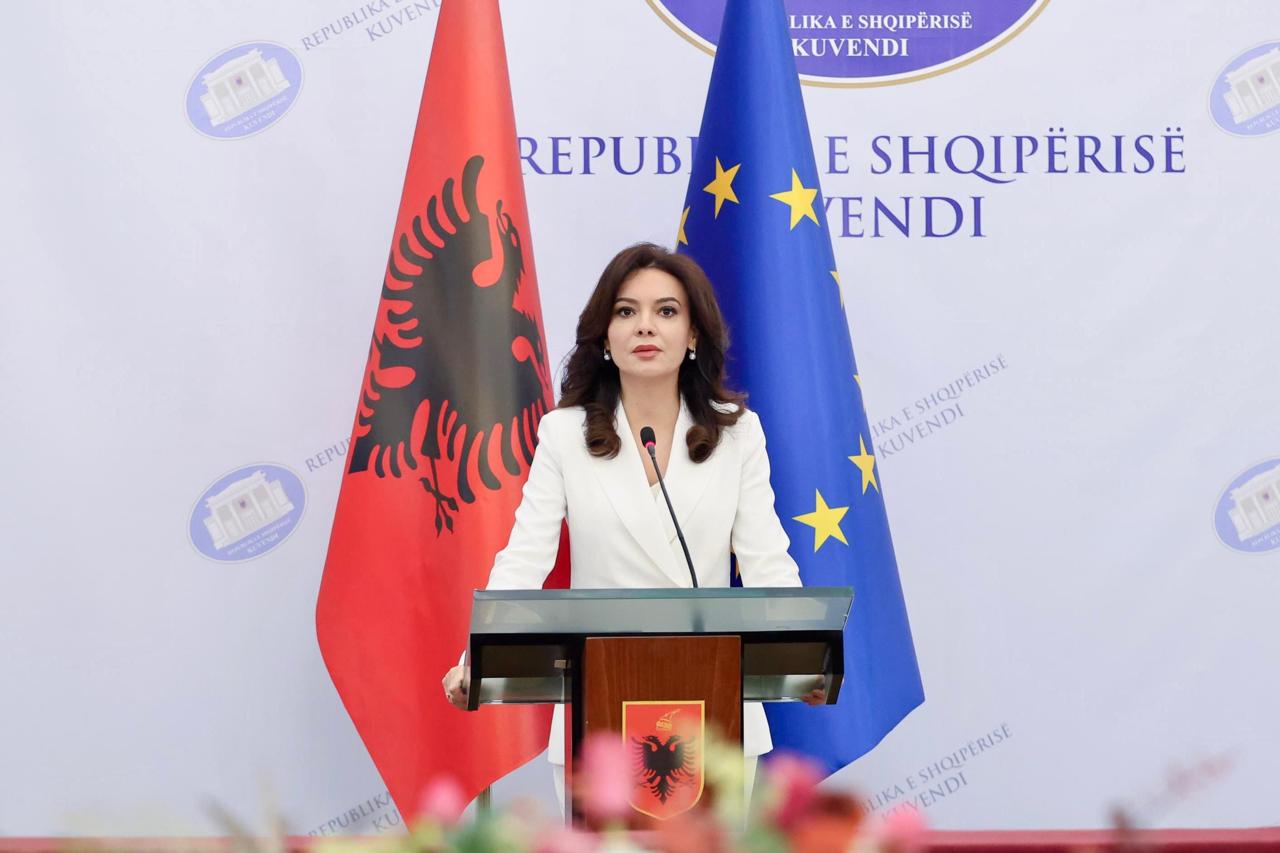Parliament Speaker Spiropali welcomes EU report, condemns Berisha’s “anti-Albanian crusade”

Speaker of Parliament Elisa Spiropali welcomed the European Parliament’s Foreign Affairs Committee report on Albania’s EU accession progress, describing it as both a strong vote of confidence and a timely reminder of unresolved challenges. In a press statement Thursday, Spiropali praised the report’s emphasis on Albania’s advancement toward full membership, while acknowledging the political divisions it also flagged.
Why this is important: The European Parliament report positions Albania as a frontrunner among EU candidate states, recognizing the country’s commitment to concluding negotiations by 2027 and achieving full membership by 2030. But it also highlights deep-rooted political polarization—a point Spiropali admitted must be addressed. Her comments reflect growing pressure on Albanian institutions not only to maintain reform momentum but also to ensure national unity in the face of escalating internal attacks on the country’s image abroad.
Context: “The challenges identified—political polarization, confrontational rhetoric, the need for a more constructive and inclusive dialogue—are real,” Spiropali said. “We must address these issues as quickly and appropriately as possible.”
She underlined the Parliament’s “indisputable and primary responsibility” to meet these challenges head-on, and explicitly tied her public statement to that responsibility.
But much of Spiropali’s address focused on criticism of the Democratic Party and its leader Sali Berisha, who recently traveled to Brussels to demand international scrutiny of Albania’s May 11 elections, which he called fraudulent. Spiropali characterized these actions as “shameful attempts to desecrate the name of Albania.”
What happened: “I strongly condemn the efforts of those who leave nothing undone, no stone unturned, and no black word unsaid against their country—only to dodge responsibility,” Spiropali said. “I am referring to the ‘missionaries’ who, after tarnishing their own name and destroying everything around them, are now determined to do the same to Albania and all Albanians.”
She described Berisha’s campaign to internationalize claims of election fraud as a last-ditch effort to hold onto power: “With the bitterness of a sore loser and the incorrigibility that defines them, they have launched a crusade to tarnish Albania’s reputation with conspiracy theories, laughable accusations, and fabricated ‘truths’—all in a desperate bid for political survival.”
Why it matters: For Albanians who have spent decades trying to improve the country’s image—damaged by the chaos of the 1990s and the spread of organized crime networks abroad—Berisha’s rhetoric is especially frustrating. His portrayals of Albania as a “narco-state” echo the country’s most painful stereotypes just as it is emerging as a major tourism destination. Critics view these efforts as sacrificing national reputation for personal political gain.
Observers note that Berisha has consistently resorted to dramatic portrayals of Albania’s condition, first by framing political life through anti-communist rhetoric in the 1990s, and more recently by alleging state capture and criminal control. In nearly every international appearance, he depicts Albania as ruled by mafia networks or foreign interests, often linking Prime Minister Edi Rama to either George Soros or crime groups.
What’s next: Despite the sharp tone, Spiropali ended with an appeal for cooperation, particularly to the new Parliament that will be formed after September 8:
“I invite all newly elected MPs to work together on the reforms our country needs for EU membership,” she said.


